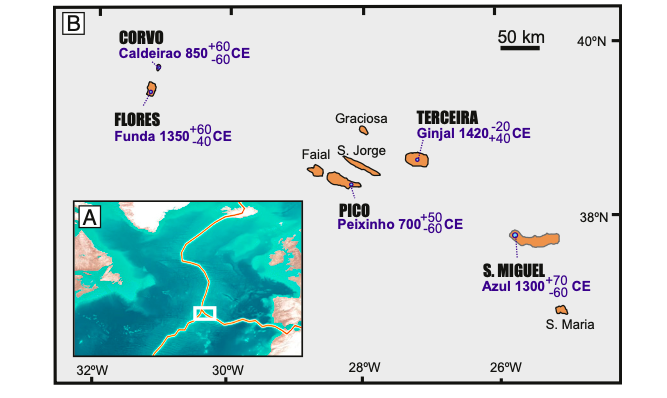In the News: Discovering an Earlier Human Habitation of Azores
November 13, 2021
Published in the Proceedings of the National Academy of Sciences, a new analysis of sediment cores from the Azores has uncovered a record of environmental change that links directly with human colonization of the remote archipelago. The research shows that humans—most likely Norse—arrived at the Azores during the early Middle Ages (500 to 900 CE), about 700 years earlier than previously understood through the archaeological record and likely steered there by changes in climate associated with the Medieval Warm Period.

“Our results not only provide unambiguous geochemical evidence for the presence of humans several hundreds of years before the first arrival by the Portuguese, they also suggest that these early settlers had substantially modified the landscape—and that it was not nearly as pristine as reported by early Portuguese explorers,” said Timothy Shanahan, associate professor in the Department of Geological Sciences at the University of Texas at Austin. Shanahan partnered with over 30 authors and was part of the data analysis and writing teams.
Media coverage of the research paper includes:
- Science: Vikings in paradise: Did the Norse settle the Azores?
- Phys.org: Evidence of people on the Azores archipelago 700 years earlier than thought
- Eos.org: Sediments Suggest Vikings May Have Been the First to Settle the Azores
- Medievalists.net: Did the Norse colonize the Azores in the 8th century?
- The Guardian: Did Vikings and their stowaway mice beat Portugal to the Azores?
- Daily Mail: It happens: Archaeologists discover ancient livestock fecal matter in Azores’ lake sediment which reveals Norse explorers stepped foot on the islands 700 years before the Portuguese
Written by Kristin Phillips, Department of Geological Sciences